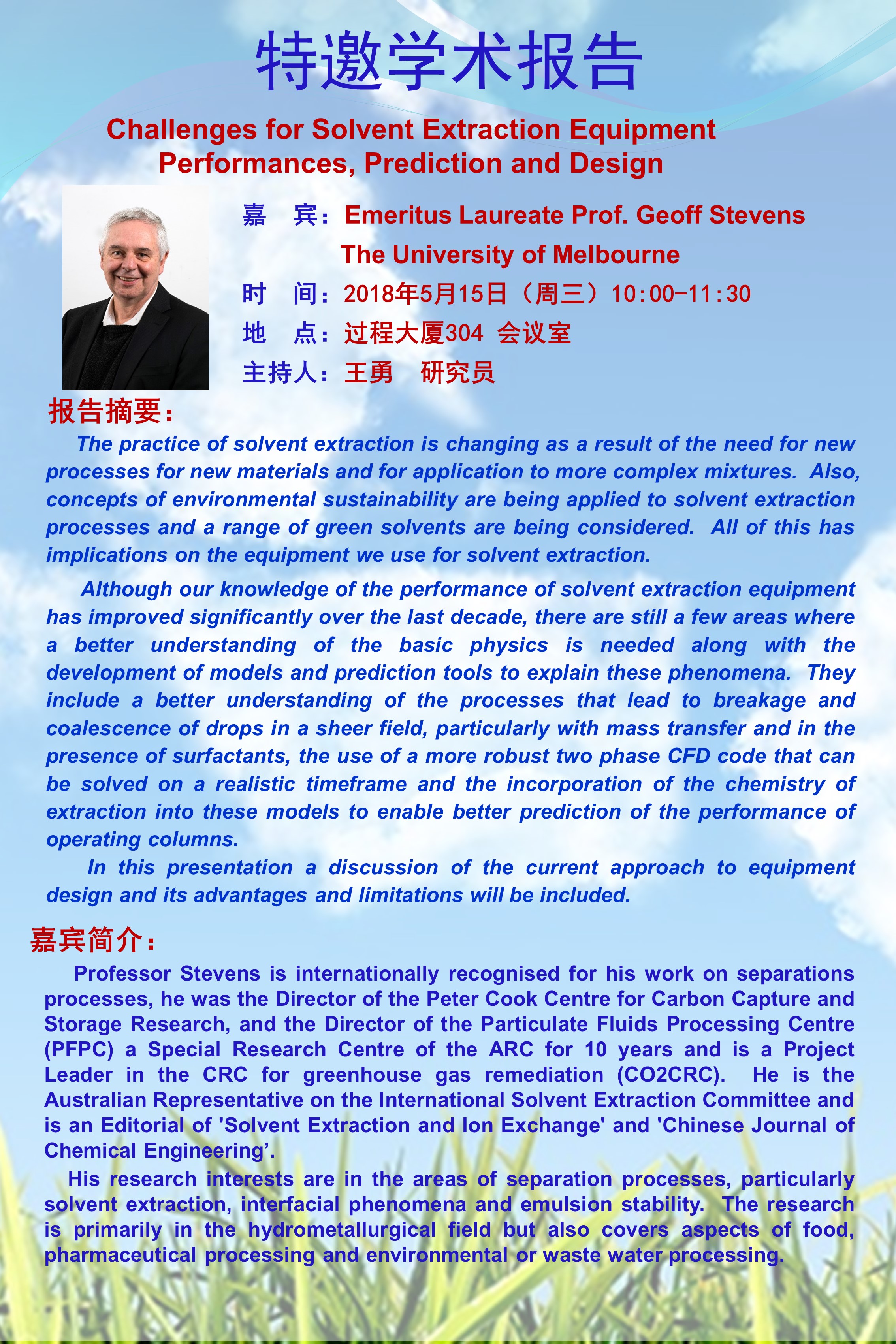嘉 宾:Emeritus Laureate Prof. Geoff Stevens
The University of Melbourne
时 间:2018年5月15日(周三)10:00-11:30
地 点:过程大厦304 会议室
主持人:王勇 研究员
报告摘要:
The practice of solvent extraction is changing as a result of the need for new processes for new materials and for application to more complex mixtures. Also, concepts of environmental sustainability are being applied to solvent extraction processes and a range of green solvents are being considered. All of this has implications on the equipment we use for solvent extraction.
Although our knowledge of the performance of solvent extraction equipment has improved significantly over the last decade, there are still a few areas where a better understanding of the basic physics is needed along with the development of models and prediction tools to explain these phenomena. They include a better understanding of the processes that lead to breakage and coalescence of drops in a sheer field, particularly with mass transfer and in the presence of surfactants, the use of a more robust two phase CFD code that can be solved on a realistic timeframe and the incorporation of the chemistry of extraction into these models to enable better prediction of the performance of operating columns.
In this presentation a discussion of the current approach to equipment design and its advantages and limitations will be included.
嘉宾简介:
Professor Stevens is internationally recognised for his work on separations processes, he was the Director of the Peter Cook Centre for Carbon Capture and Storage Research, and the Director of the Particulate Fluids Processing Centre (PFPC) a Special Research Centre of the ARC for 10 years and is a Project Leader in the CRC for greenhouse gas remediation (CO2CRC). He is the Australian Representative on the International Solvent Extraction Committee and is an Editorial of 'Solvent Extraction and Ion Exchange' and 'Chinese Journal of Chemical Engineering’.
His research interests are in the areas of separation processes, particularly solvent extraction, interfacial phenomena and emulsion stability. The research is primarily in the hydrometallurgical field but also covers aspects of food, pharmaceutical processing and environmental or waste water processing.

 Search
Search




 京公网安备110402500047号
京公网安备110402500047号